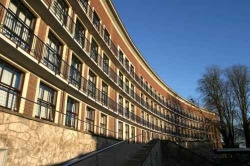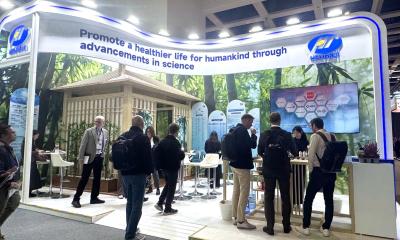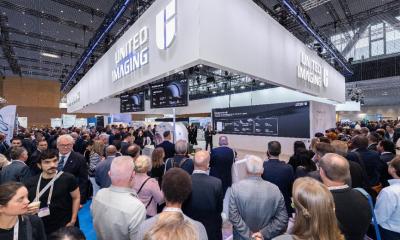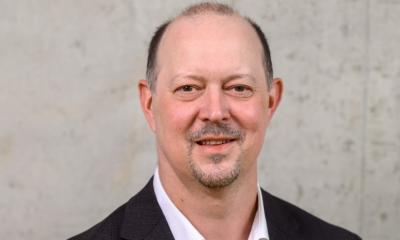Large hospital acquisitions in Germany
Fresenius subsidiary Helios on its way to become market leader. According to a study* of company mergers, with the privatisation of hospitals, Germany is in an exceptional position in Europe. No other EU country sold so many and such large hospitals so quickly as this country has done. The concept of selling entire university hospitals is unknown elsewhere in Europe.

Accordingly, the market share of private enterprises has increased. Over recent years the wave of privatisation lost a little steam and the concentration process shifted. Instead of buying up communal hospitals the large providers are now expanding through the takeover of smaller private companies.
The hospital group Helios, a Fresenius subsidiary, clinched the latest hospital buy-up this March, taking over 94.7% of shares in Damp Holding AG based in Hamburg, Schleswig-Holstein and Mecklenburg-Vorpommern. Thus the largest German Hospital Group (2011 turnover: €2.7 billion) swallowed up the facilities of the Damp group (2010 turnover: €427 million).
Size before class?
The hospital world in Northern Germany is therefore undergoing a fundamental change. Whilst the Damp group previously maintained a comparative balance between small, medium and large hospital operators the trend is now towards concentration. In Mecklenburg-Vorpommern the large German providers Helios and Sana are now represented in all parts of this Federal German state. Along with the maximum care hospital in the capital Schwerin, the Helios group is also operates the hospital in Stralsund and rehabilitation clinics in Leezen and Ahrenshoop.
Due to the distance of the former Damp Hospital in Wismar to the Helios Clinic in Schwerin, the hospital in Wismar was separated out from the facilities of the Damp group and sold to Sana. Sana is now running the Wismar and Bergen hospitals in on the island of Rügen. Hence medical care along the coastline of Mecklenburg-Vorpommern is firmly in the hands of the two large concerns and two existing university hospitals. It remains to be seen how Helios and Sana will generate synergy effects. Meanwhile, in Schleswig-Holstein, whilst the Helios group previously had no presence there it has now gained three acute care hospitals (in Damp, Schleswig and Kiel) and three rehabilitation clinics, as well as numerous centres for out-patient medical care and out-patient rehabilitation care, along with touristic establishments (a hotel, holiday park, congress centre and yacht harbour) in Damp.
The Paracelsus group has pulled out of Henstedt-Ulzburg because the hospital was too far from other facilities owned by the group for any possible synergy effects. The boards at the hospital groups Westküste (Heide and Brunsbüttel) and the Hospital Nordfriesland (Husum, Tönning, Niebüll and Föhr-Amrum) are currently looking into possible mergers. The reasons for this surprising convergence, according to representatives of both, are the ‘dramatically declining general conditions’.
Among the problems, compared to the other German states, are low base case values, problems recruiting junior doctors – the expense is higher for this along the coast and – as well as the preservation of locations that are below the critical size, but which are relevant to overall care structures.
Employees’ protest
Whilst a possible fusion of the communal hospital groups in Schleswig-Holstein should have little impact on staff, the 8,000 Damp group employees have been warning of strikes since the beginning of 2012. At the core of the dispute between verd.i and the employer is the Damp group’s collective agreement, which only expired at the end of 2011 and which the trade union wants to renegotiate. The board of the Damp group refused this, in view of the impending takeover by Helios. Oliver Dilcher, tariff negotiator at verd.i: ‘This is (…) not about a transition, as the Helios collective agreement only covers the field of acute care. Rehabilitation clinics, therapy centres and services are not covered by the Helios tariff agreement. Our objective is to carry on with the Damp tariff! This is superior to the one provided by Helios. And again, we do not want a transition – we have a collective agreement that covers everything!”
Employees fear that, once under Helios management, there will be wage losses of up to 15%. Verd.i is currently asking for a salary increase of 7.5% and a one-off payment of €200. Employees most recently expressed their views during a large demonstration in front of the company’s HQ in Hamburg. The acquisition of the Damp Group seems to be just an appetizer for the “main course” goals newly appointed Fresenius chairman Ulf Schneider put on the menu. Fresenius offers the shareholders of Rhön clinics €22.50 per share. If more than 90% of the shareholders accept the deal, a new giant with more than 120 hospitals and about €80,000 employees will appear on the German and European market. The above-mentioned study concludes: ‘Whoever sells their hospital today won’t really know who owns it tomorrow.’
Along the German Baltic Coast and elsewhere in the country this statement comes true for many employees and patients.
####
*Study by the Public Services Union verd.i on company mergers in the hospital market from 2007 (Niko Stumpfögger: Hospital Fusions and Competition Law).
30.04.2012





